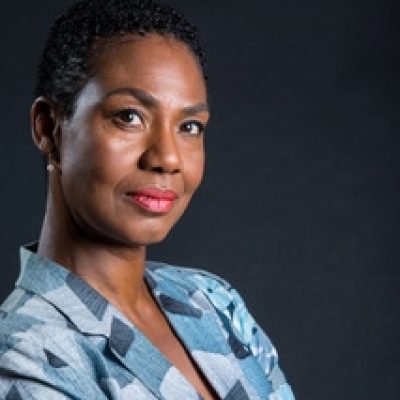Sharron McPherson, an innovative leader with recognized expertise in climate and development finance, brings a global perspective to designing and deploying financial solutions to mobilize private capital for climate-smart development. She specializes in bridging public finance with capital markets and institutional and impact investors to effect the transformation to a low-carbon future that we need.
An accomplished former banking and financial services executive, and attorney with the firm Cleary, Gottlieb, Steen & Hamilton, Sharron has over 30 years of experience starting, building, and navigating businesses through competitive and complex regulatory environments. She is co-Founder and former Executive Director of the Centre for Disruptive Technologies, an affiliate of the University of Cape Town’s Graduate School of Business where she serves as a Senior Adjunct in Project Finance. She is a member of the faculty of Singularity University based in Mountainview, California where her focus is on advancing technologies for a climate resilient future. She has served as a strategic advisor on high impact resilience investing for a number of global corporations including the Shell Foundation, Chevron and Alexander Forbes. Her development finance and government advisory work includes the World Bank & IFC, the African Development Bank, the Development Finance Corporation and the governments of Nigeria, Ghana, Tanzania and South Africa. More recently she advised the United States Federal Government on the sustainable job creation aspects of the Inflation Reductions Act of 2022 and in 2023 she was awarded a Senior Non-Resident fellowship with the Loomis Council of the Stimson Center, a bi-partisan think tank based in Washington, D.C.
She is Co-Founder and former CEO of Africa’s largest women’s infrastructure investment group, Women in Infrastructure Development & Energy Pty Ltd (WINDE) – a consortium with over 2,000 women SME owners in infrastructure and the related sectors. To date, WINDE has measurably impacted over 1.5 million people and has created over 2,000 high quality, sustainable jobs.
An experienced relationship manager with a track record in business development and structuring transactions, Sharron has worked in partnership with development finance institutions, commercial banks, asset managers, corporates, climate funds, philanthropic foundations, and governments. She is also a frequent moderator and speaker on topics of climate finance, the global legal and regulatory framework of ESG, climate technology, and mobilizing private capital.
Sharron holds a Doctorate in Jurisprudence from Columbia University School of Law, Honors in International Trade & Finance from the University of Toulon, a Bachelor’s degree in Economics from The College of William & Mary, and Post-Doctoral Studies in Exponential Technologies from Singularity University. She serves as a Non-Executive Director and Strategic Advisor to multiple publicly traded and private companies, leveraging her expertise to drive sustainable finance and resilience innovation worldwide.
In addition to serving on the boards of listed banks and major insurance companies (including Momentum and Alexander Forbes), she is also the Chair of the Board of Directors of Shared Interest, a loan guarantee fund where she has played a pivotal role in unlocking over $175 million in capital, benefiting over 30 million people across Africa.
Sample Topics
Resilience Technology for a long term value creation
From NASA inspired ”air-protein” and deep eutectic solvents, to neuromorphic computing, radical Innovation is enabling us to push ahead of some of the biggest challenges of our lifetime, including global pandemics, unprecedented economic instability and climate change. Fueled by breakthroughs in AI/ML, Earth Observation and Big Data – resilience technologies give us reason to be optimistic about how we can leverage human ingenuity to respond and adapt to new approaches to long term value creation despite increasingly challenging and disruptive business environments.
This talk is divided into three segments: (1) In part one, participants take a deep dive into demystifying the concept of resilience and learn about the emerging technologies that are being leveraged globally by foundations to drive the “New Agenda” – to create long term value; (2) In part two, we explore how AI/ML, Big Data and Earth Observation technologies are shaping the future of all major industrial sectors; and (3) Part 3 concludes by synthesizing technology and industry insights into practical steps that companies and organizations can take to in order to utilize resilience technologies to create “omni-wins”.
Climate Tech & Climate Investing
Resilience
The Future of Learning
Reimagining Cities and the Built Environment
Digital Transformation as a Strategic Response to Disruption
The Art of Leading Transformation












